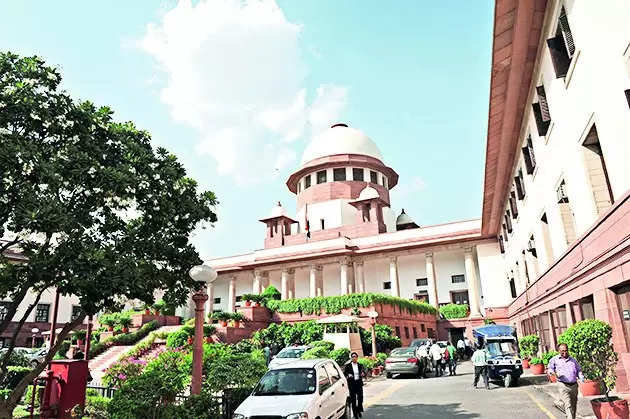‘Children must attend good schools’: Supreme Court dismisses plea exempting private schools from admitting EWS category students

NEW DELHI: The Supreme Court of India has upheld the Bombay High Court’s decision to invalidate a Maharashtra government notification aimed at exempting certain private schools from admitting students from the Economically Weaker Section (EWS). The notification, issued on February 9, had sought to exempt private schools located within a one-kilometer radius of government or aided schools from the requirement to reserve 25 percent of seats for EWS students.
Supreme Court’s Ruling
In its judgement, a bench led by Chief Justice of India (CJI) D Y Chandrachud, alongside Justices J B Pardiwala and Manoj Misra, dismissed the plea challenging the Bombay High Court’s order. The Supreme Court emphasized the importance of integrating EWS students into good educational institutions. According to the bench, “Children from the EWS category must attend good schools. When children studying in these schools interact with EWS students, they will understand what truly the country is. Otherwise, they will just live in cocoons of fancy gadgets and cars.”
The Court criticised the notion that government schools could serve as an adequate substitute for private schools in providing quality education. It acknowledged that while government schools play a crucial role, they cannot always match the standard of private institutions. CJI Chandrachud further highlighted that ensuring EWS students have access to high-quality education is not solely the responsibility of the state but also of those who have benefitted from the country’s educational system.
Background of the notification
The Maharashtra government’s February 9 notification sought to relieve private unaided schools within one kilometer of a government or aided school from adhering to the 25 percent reservation rule for EWS students. This reservation is mandated under the Right of Children to Free and Compulsory Education Act, 2009 (RTE Act), which aims to ensure free education for children from economically weaker and disadvantaged backgrounds.
Before the issuance of this notification, all private unaided schools were required to reserve 25 percent of their seats for students from these categories. The notification’s exemption was challenged by multiple petitions arguing that it contravened the RTE Act and violated children’s constitutional right to education.
Bombay High Court’s Ruling
The Bombay High Court had previously quashed the notification, deeming it “ultra vires” or beyond the legal power of the Maharashtra government. The High Court’s decision reinforced the provisions of the RTE Act, which guarantees that 25 percent of seats in private unaided schools at the entry level (Class 1 or pre-primary) must be reserved for economically weaker and disadvantaged children. The Act stipulates that these students receive free education, with the government reimbursing the tuition fees to the schools.
(With inputs from PTI)
Supreme Court’s Ruling
In its judgement, a bench led by Chief Justice of India (CJI) D Y Chandrachud, alongside Justices J B Pardiwala and Manoj Misra, dismissed the plea challenging the Bombay High Court’s order. The Supreme Court emphasized the importance of integrating EWS students into good educational institutions. According to the bench, “Children from the EWS category must attend good schools. When children studying in these schools interact with EWS students, they will understand what truly the country is. Otherwise, they will just live in cocoons of fancy gadgets and cars.”
The Court criticised the notion that government schools could serve as an adequate substitute for private schools in providing quality education. It acknowledged that while government schools play a crucial role, they cannot always match the standard of private institutions. CJI Chandrachud further highlighted that ensuring EWS students have access to high-quality education is not solely the responsibility of the state but also of those who have benefitted from the country’s educational system.
Background of the notification
The Maharashtra government’s February 9 notification sought to relieve private unaided schools within one kilometer of a government or aided school from adhering to the 25 percent reservation rule for EWS students. This reservation is mandated under the Right of Children to Free and Compulsory Education Act, 2009 (RTE Act), which aims to ensure free education for children from economically weaker and disadvantaged backgrounds.
Before the issuance of this notification, all private unaided schools were required to reserve 25 percent of their seats for students from these categories. The notification’s exemption was challenged by multiple petitions arguing that it contravened the RTE Act and violated children’s constitutional right to education.
Bombay High Court’s Ruling
The Bombay High Court had previously quashed the notification, deeming it “ultra vires” or beyond the legal power of the Maharashtra government. The High Court’s decision reinforced the provisions of the RTE Act, which guarantees that 25 percent of seats in private unaided schools at the entry level (Class 1 or pre-primary) must be reserved for economically weaker and disadvantaged children. The Act stipulates that these students receive free education, with the government reimbursing the tuition fees to the schools.
(With inputs from PTI)





